T32 ITCB mentors
Mentoring teams work with ITCB fellows to help guide and inform research projects as well as career plans.
Fellows will engage with mentors on a regular basis through laboratory-based experiences and through participation in ITCB Program components.
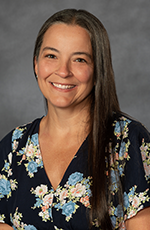 Paula Bos, Ph.D.
Paula Bos, Ph.D.
Associate Professor, Pathology
Dr. Bos is an Associate Professor in the department of Pathology. Her NCI-funded research focuses on the crosstalk between immune and brain resident cells in the establishment and outgrowth of brain metastasis. She has mentored four postdoctoral fellows, five graduate students, and several undergraduate and medical students, all of whom continued in academic or industry settings. Trainees working in the Bos laboratory will obtain expertise in the tumor microenvironment and metastasis biology and will learn to utilize and design genetic models to answer mechanistic questions.
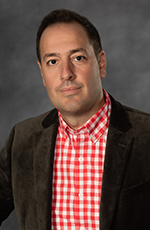
Anthony Faber, Ph.D.
Professor, Philips Institute for Oral Health Research
Dr. Faber holds the Congdon Family Chair in Cancer Research and is a member of Massey’s Developmental Therapeutics research program. His laboratory studies targeted therapies in solid tumors where he has previously and currently mentored several postdoc fellows and graduate students. Dr. Faber is currently a co-mentor on an F32 fellowship for a student studying ferroptosis in head and neck squamous cell carcinomas. His current research investigates neuroblastoma reliance on DNMT1, SUMOylation disruption and it’s toxicity for SS18-SSX-driven synovial sarcoma, MYCN as a driver of a druggable SUMOylation program in neuroblastoma, and MYCN as a driver of ferroptotic vulnerability in neuroblastoma.
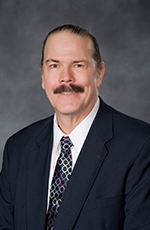
Paul Fisher, Ph.D.
Professor and Chair, Human and Molecular Genetics
Director, VCU Institute of Molecular Medicine
Dr. Fisher’s work focuses on the progression to metastasis with particular emphasis on exploiting this accrued knowledge to identify molecular targets, generate targeted therapeutics, and develop innovative molecular tools. Mentors working with Dr. Fisher will gain knowledge about translating laboratory studies from bench to bedside as he has done with many of his research studies. For instance, Dr. Fisher’s laboratory is exploring ways of inhibiting the expression of several oncogenes using genetic and pharmacological approaches, including small molecule inhibitors of protein-protein interactions, protein degradation (PROTEC), oncolytic viruses and immunotherapy.
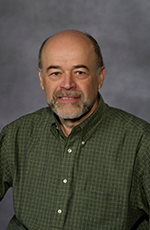
David Gewirtz, Ph.D.
Professor, Pharmacology & Toxicology
For the past 30 years, Dr. Gewirtz’s research has been directed toward experimental chemotherapy and radiotherapy in cancer. These efforts have helped define autophagy and senescence as primary responses to chemotherapy and radiotherapy in solid tumor cell models. His laboratory has established the capacity of cells induced into senescence by chemotherapy and radiation to undergo proliferative recovery, potentially as models of tumor dormancy and disease recurrence. Further, they have demonstrated the capacity of senolytic agents to eliminate tumor cells induced into senescence by chemotherapy and radiation both in cell culture and tumor-bearing animal models. As a mentor, Dr. Gewirtz can provide trainees with his strong research expertise and valuable experience working with solid tumor cell and animal models. He has trained between 30 to 40 Ph.D., Masters and undergraduate students and currently has three Ph.D. and three Masters students working in his laboratory.

Steven Grant, M.D.
Professor, Internal Medicine
Massey Associate Director, Translational Research
Dr. Grant currently serves as co-leader of the Developmental Therapeutics research program at Massey. He has sustained long-standing NCI funding for studies examining the mechanisms of action of targeted agents in hematologic malignancies, many of which have been translated into early-phase trials in these diseases. He has trained a variety of undergraduate and medical students, as well as Ph.D., M.D. and Ph.D. candidates and postdoctoral fellows, several of whom have gone on to pursue independent academic investigative careers. Trainees working with Dr. Grant will gain expertise in the molecular pharmacology of targeted anti-neoplastic agents and may participate in studies examining approaches to circumventing drug resistance in multiple myeloma.
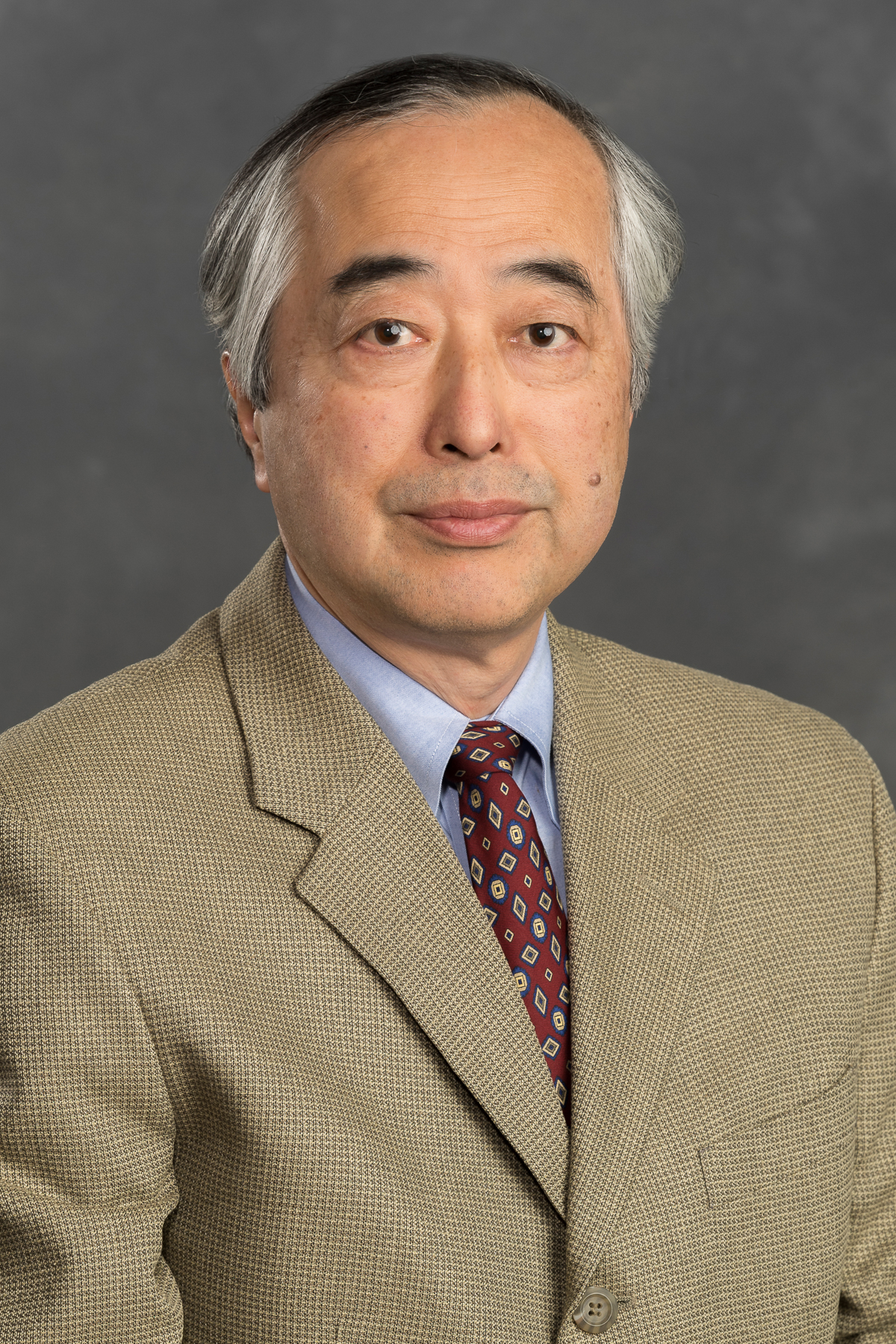
Hisashi Harada, Ph.D.
Professor, Philips Institute for Oral Health Research
Dr. Harada’s current NCI-funded research focuses on the efficacies of chemotherapies followed by senolytics for breast and lung cancer treatment and targeting gain-of-function p53 and BCL-2 for small cell lung cancer treatment. He has mentored numerous junior faculty, postdoctoral fellows, graduate students, dental students, undergraduate students, and research assistants. Trainees working with Dr. Harada will gain expertise related to the molecular mechanisms of tumorigenesis and therapy response and resistance.
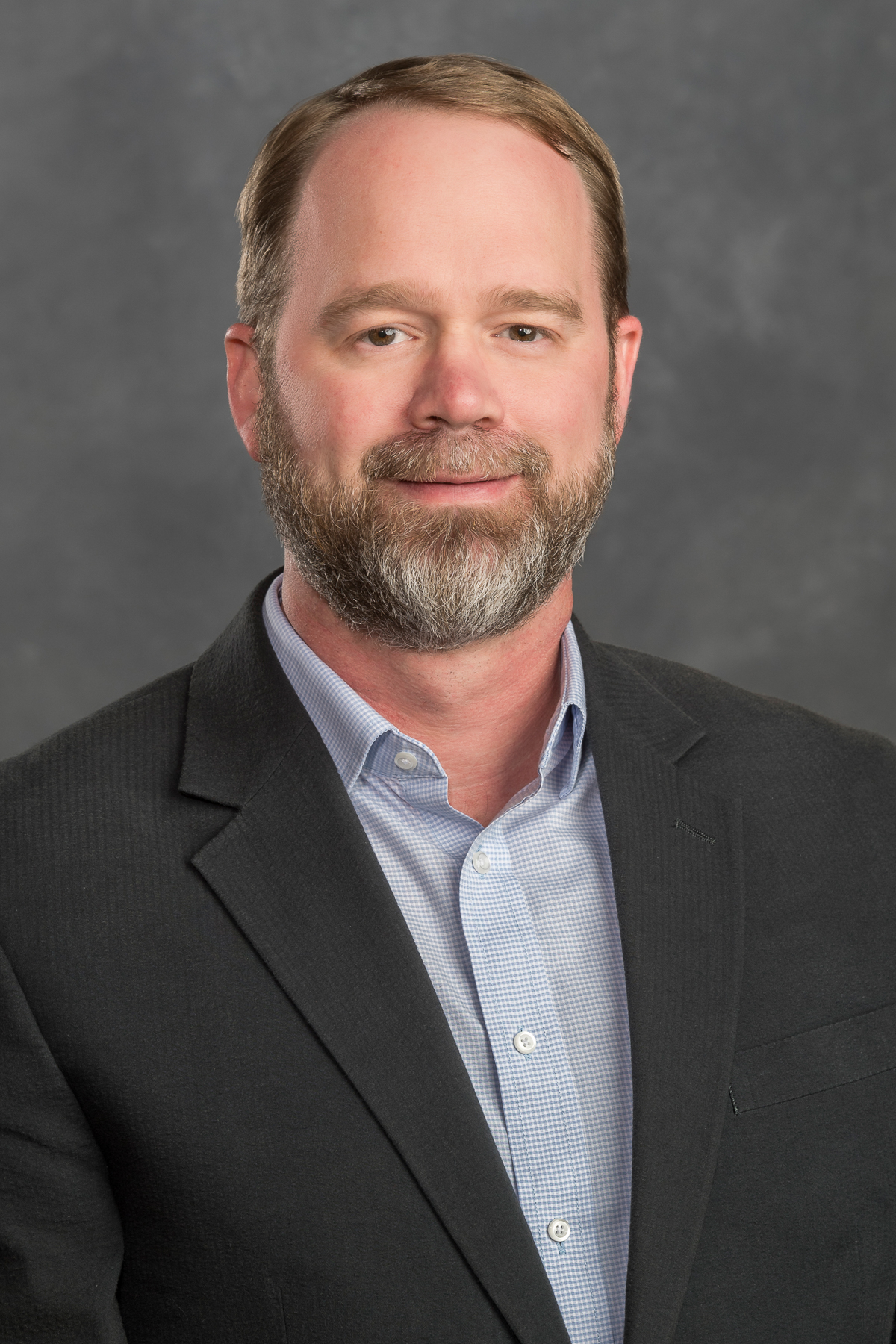
Chuck Harrell, Ph.D.
Associate Professor, Pathology
Dr. Harrell’s NCI-funded research focuses on identifying new therapeutic strategies to overcome carboplatin-resistance for triple-negative breast cancer (TNBC) patients (R01). He is also funded to develop and test patient-derived xenograft models from patients of African descent (R21). He has mentored undergraduate students, Masters and Ph.D. students, M.D./Ph.D. students, postdoctoral fellows and junior faculty. Dr. Harrell's laboratory currently has two patient advocates both of whom had TNBC and actively participate in his research program. Trainees mentored by Dr. Harrell may contribute to collaborative studies to develop new therapies for breast cancer as well as those focusing on the development and characterization of new cancer models that encompass ancestrally-diverse patient samples.
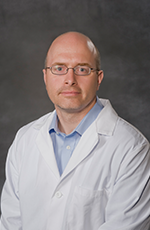
Joseph Landry, Ph.D.
Associate Professor, Human & Molecular Genetics
Dr. Landry’s research can provide unique opportunities for T32 trainees. He studies the epigenetic regulation of the genome, and his work includes breast and lung cancer models. He has discovered roles for chromatin remodeling complexes in cell-type specific gene expression, embryonic and immune system development, and tumor immunogenicity. His research has connected chromatin remodeling with antitumor immunity, providing opportunities for novel therapeutic targets. Using preclinical mouse models, he has contributed to the development of a first-in-class family of bromodomain inhibitors, which are in their third generation. His work studying epigenetic regulation of the cancer genome has expanded into the use of CRISPR/Cas9, humanized mice, PDXs and novel cell line reporters of dormancy.
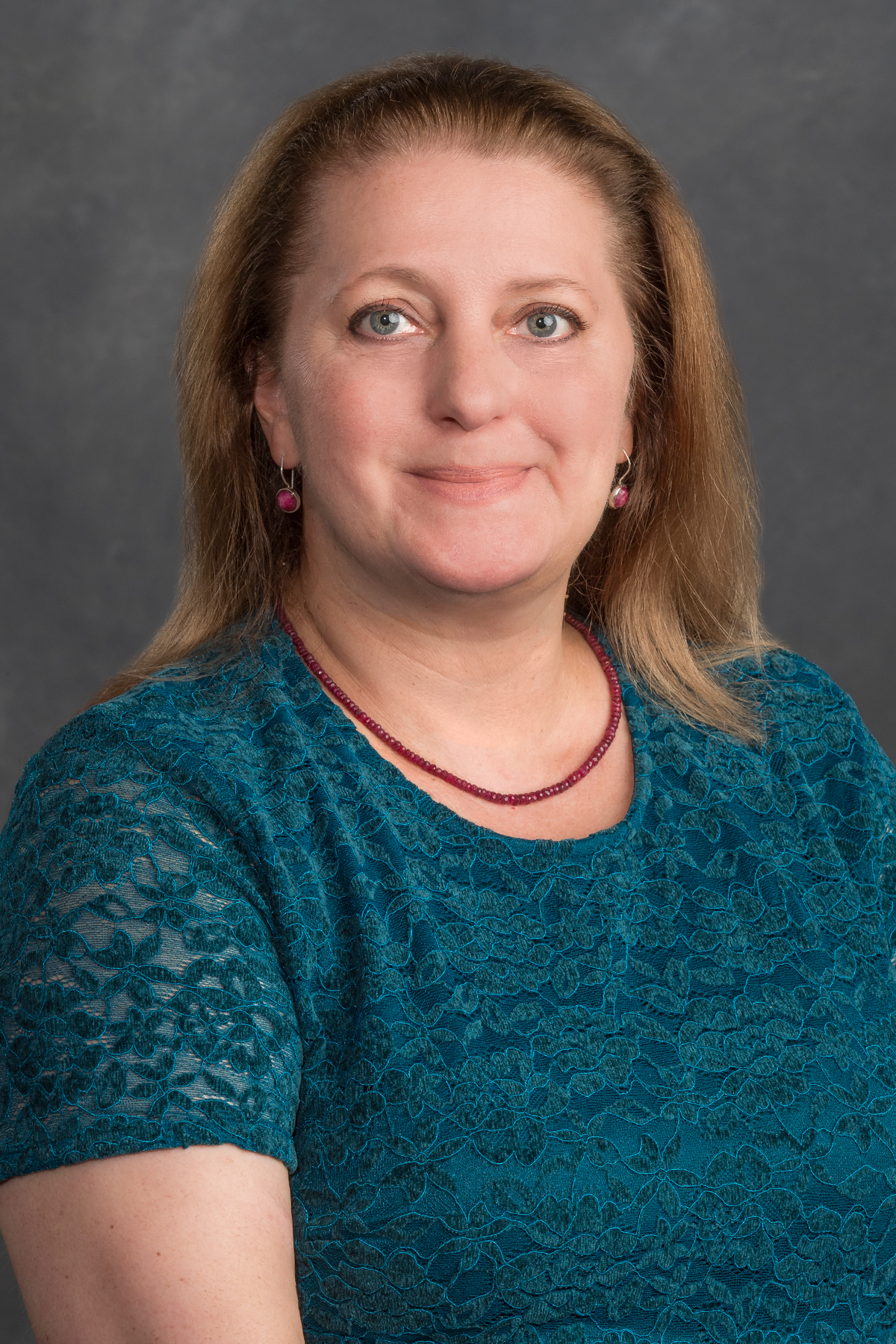
Larisa Litovchick, M.D., Ph.D., Associate Director
Associate Professor, Internal Medicine
Dr. Litovchick is an Associate Professor in the Department of Internal Medicine. She has a strong record of NIH and DOD research funding, including seminal works on the evolutionarily conserved transcriptional repressor complex DREAM, a master regulator of cell-cycle dependent gene expression. During her career, she has extensively published in peer-reviewed scientific journals. She is currently serving on the Cancer Drug Development and Therapeutics SBIR/STTR study section.
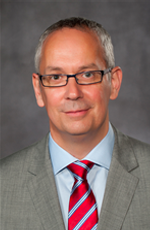
Iain Morgan, Ph.D.
Professor and Chair, Oral & Craniofacial Molecular Biology
Director, Philips Institute of Oral Health Research
Associate Dean for Research, School of Dentistry
Dr. Morgan’s laboratory examines the human papillomavirus 16 life cycle in deregulating oral keratinocyte biology, including their malignant transformation. His research aims to understand how the viral proteins E1 and E2 interact with host protein factors and signaling pathways to replicate the HPV genome. Dr. Morgan has extensive experience mentoring Ph.D. and postdoctoral scholars. He has successfully directly mentored 10 Ph.D. students, all of whom obtained at least one first-author manuscript (ordinarily more) and went on to research positions including Faculty positions. Also, he has directly supervised six postdoctoral scholars, all of whom remain research active and some of whom are in faculty positions. In a prior position as Dean for Postgraduate Research at the University of Glasgow, he had overall oversight of around 600 Ph.D. students.
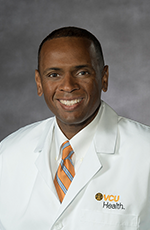
Patrick Nana-Sinkam, M.D., Ph.D.
Professor, Internal Medicine
Chair, Division of Pulmonary Disease & Critical Care Medicine
Associate Director, Wright Center for Clinical and Translational Research
Dr. Nana-Sinkam’s research focuses on the molecular pathogenesis of lung cancer and identification of novel tumor biomarkers for early lung cancer detection and surveillance. He has been funded by the National Heart, Lung, and Blood Institutes as well as the NCI and is currently the PI on a U01 investigating the role of extracellular vesicles in small cell lung cancer and a KL2 training award. Dr. Nana-Sinkam has mentored nearly 50 trainees and early career faculty, and within the Wright Center, he serves as the lead for faculty development. Trainees working in the Nana-Sinkam laboratory will gain expertise related to the development of clinical biomarkers in the context of lung cancer early detection and prognosis and understanding the role of epigenetics including non-coding RNAs and the epitranscriptome in the pathogenesis of lung cancer.
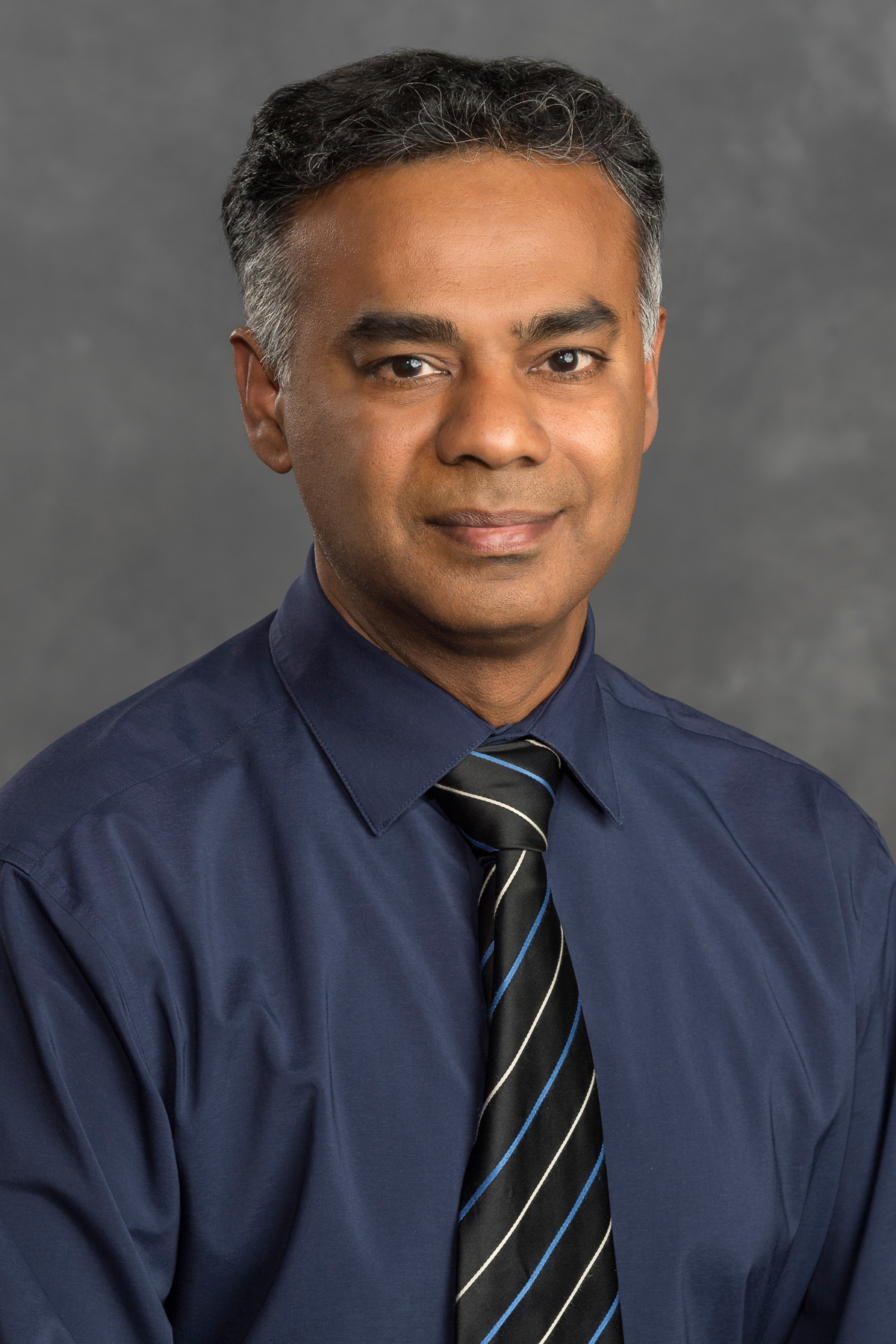
Senthil Radhakrishnan, Ph.D.
Associate Professor, Pathology
Dr. Radhakrishnan’s laboratory is focused on understanding and targeting the cellular protein quality control pathways such as the ubiquitin-proteasome system and the autophagy-lysosomal system in cancer. Using breast cancer and Ewing sarcoma as model systems, current work is directed toward defining the proteasome synthesis pathway regulated by the transcription factor Nrf1; identifying targetable/druggable positive and negative regulators of the Nrf1 pathway; developing chemical inhibitors for DDI2, a protease that positively regulates Nrf1; and exploring the role of Nrf1 in proteasome inhibitor-induced compensatory autophagy. Trainees working in his laboratory will benefit from his research expertise in developing novel therapeutic options that target the ubiquitin-proteasome system in various human pathologies including cancer.
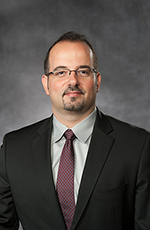
Fadi Salloum, Ph.D.
Professor, Internal Medicine (Cardiology)
Associate Chair for Research, Internal Medicine
Dr. Salloum’s research program focuses on cancer therapy-induced cardiotoxicity and he is currently funded by a seven-year R35 award from NHLBI in addition to a Phase II R44 (SBIR) from NHLBI. He has mentored numerous graduate students, postdoctoral fellows, and junior faculty, many of whom have been funded by the American Heart Association and the NIH (pre- and postdoctoral grants as well as career development K awards). His research focuses on understanding the impact of cardiac comorbidities in women with breast cancer.
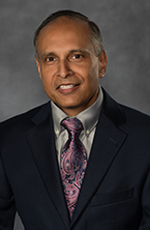
Devanand Sarkar, MBBS, Ph.D.
Professor, Cellular, Molecular and Genetic Medicine
Associate Director, Research Training & Education
Dr. Sarkar’s research is funded by NCI, NIDDK, and NINDS and focuses on understanding the molecular mechanism of fatty liver disease and liver cancer and developing novel therapy. He has mentored many junior faculty, postdoctoral fellows, and graduate, undergraduate and high school students. Trainees working with him will gain expertise related to in-depth molecular mechanisms, mouse modeling, and preclinical therapeutic studies with a focus on patients with liver cancer.
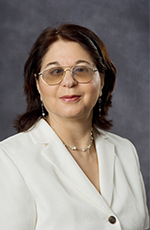
Sarah Spiegel, Ph.D.
Professor and Chair, Cellular, Molecular and Genetic Medicine
Trainees working in Dr. Spiegel’s laboratory will explore research focused on the lipid mediator S1P, whose role in cell growth regulation was discovered in her laboratory more than a decade ago. Her laboratory studies how S1P regulates many processes important for immunity and cancer, including cell growth, survival, angio- and lymphangiogenesis, and recruitment of immune cells. More recently, her laboratory identified direct intracellular targets of S1P, including HDACs and tumor necrosis factor receptor-associated factor 2 (TRAF2), thereby uncovering a key role of S1P in inflammatory signaling. Their research continues to focus on the roles of S1P, the enzymes that regulate its levels (SphK1 and SphK2), and the S1P receptors and intracellular targets of S1P in the pathophysiology of breast and colorectal cancer.
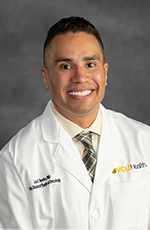
Jose Trevino, M.D.
Associate Professor, Surgery
Dr. Trevino’s research identifies molecular characteristics that help differentiate molecular signatures between pancreatic tumors. He is currently designing and developing a new precision medicine-based treatment approach involving stearoyl-linked-Gemcitabine with surface-modified anti-EGFR antibody nanoparticles utilizing orthotopic PDX pancreatic animal models. He also has active research related to cancer control.
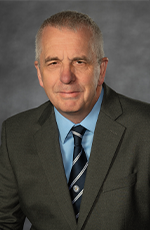
David Turner, Ph.D.
Associate Professor, Surgery
Dr. Turner’s research examines the increased bioavailability of a heterogeneous group of peptide, lipid and nucleotide post-translational modifications called Advanced Glycation End Products (AGEs) and promoting prostate tumor growth. As a basic/translational scientist with expertise in the socioeconomic and environmental implications of cancer, this work has developed a research niche. Therefore, Dr. Turner offers trainees unique opportunities at the intersection of cancer biology and lifestyle behaviors.
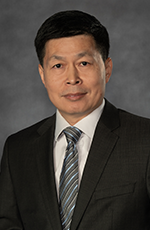
Xiang-Yang Wang, Ph.D.
Professor, Cellular, Molecular and Genetic Medicine
Co-leader of the Developmental Therapeutics research program, Dr. Wang’s laboratory focuses on the roles of scavenger receptors in host immune functions and defining the molecular basis of immunomodulating properties of stress proteins, with the goal of developing novel or improved therapeutic strategies for cancer treatment. They recently discovered that scavenger receptor A (SRA) or CD204, a prototype member of the SR family and a pattern-recognition receptor, is capable of attenuating immunostimulatory activities of ‘danger’ molecules or adjuvants (e.g., toll-like receptor agonists and HSPs), therefore, dampening the antitumor immune responses generated by therapeutic vaccines. They are focusing on the elucidation of the mechanisms by which SRA/CD204 and other SRs modulate host immune responses in different contexts using molecular, cellular and immunological approaches. ITCB trainees working with him will be well positioned to contribute to basic and translational immunological research.
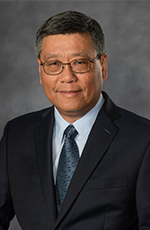
Yuesheng Zhang, M.D., Ph.D.
Professor, Pharmacology & Toxicology
Dr. Zhang’s NCI-funded research focuses on mechanisms of cancer resistance to EGFR and HER2 inhibitors, as well as the discovery and development of agents that overcome such resistance. He has mentored graduate students, postdoctoral fellows and junior faculty. Trainees working in Dr. Zhang's laboratory will gain expertise related to receptor tyrosine kinases biology, cancer drug resistance and cancer drug development.
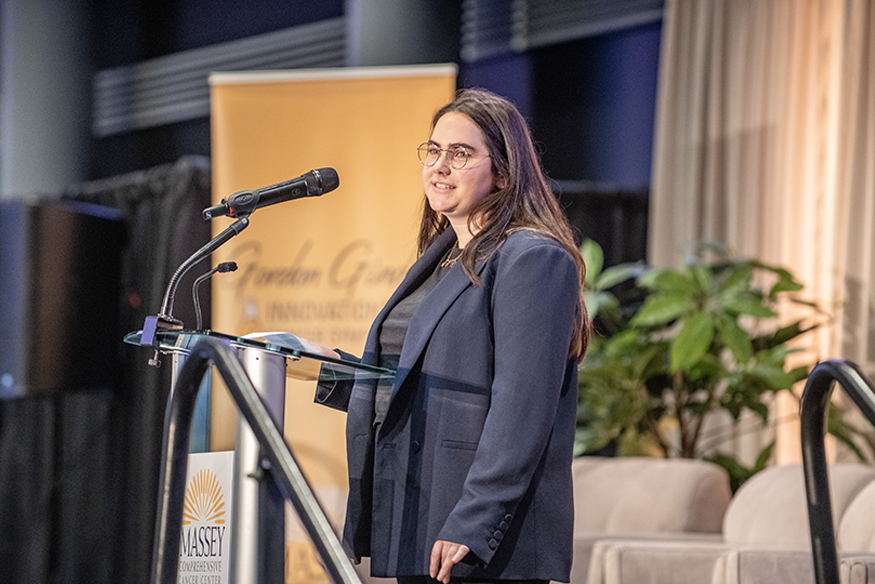
ITCB Fellows
Learn more about fellows participating in the T32 Integrative Training in Cancer Biology program.
